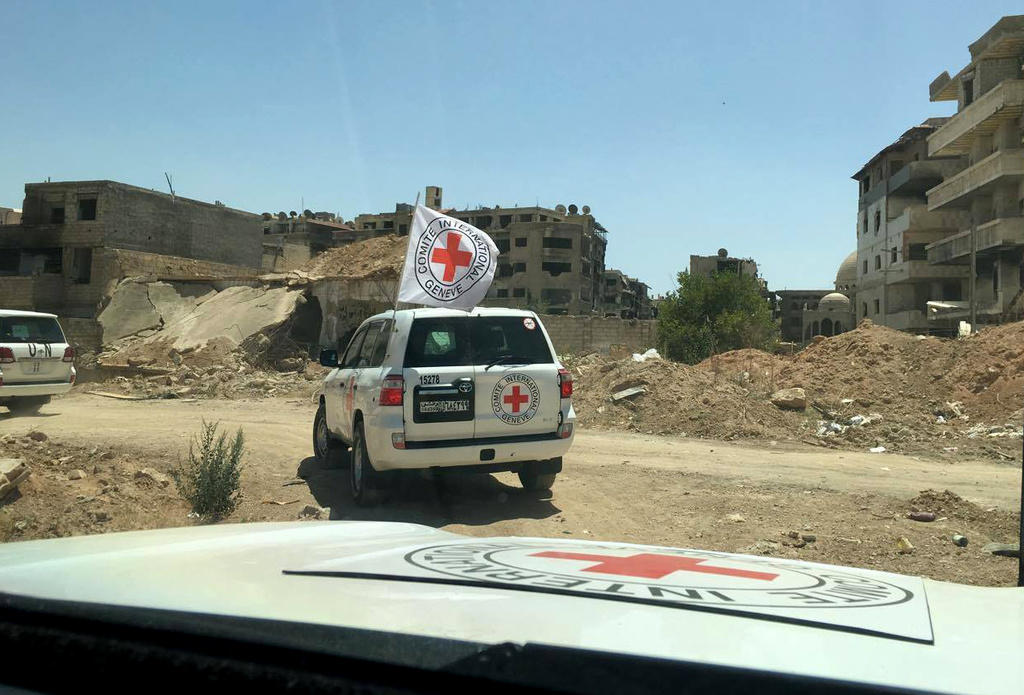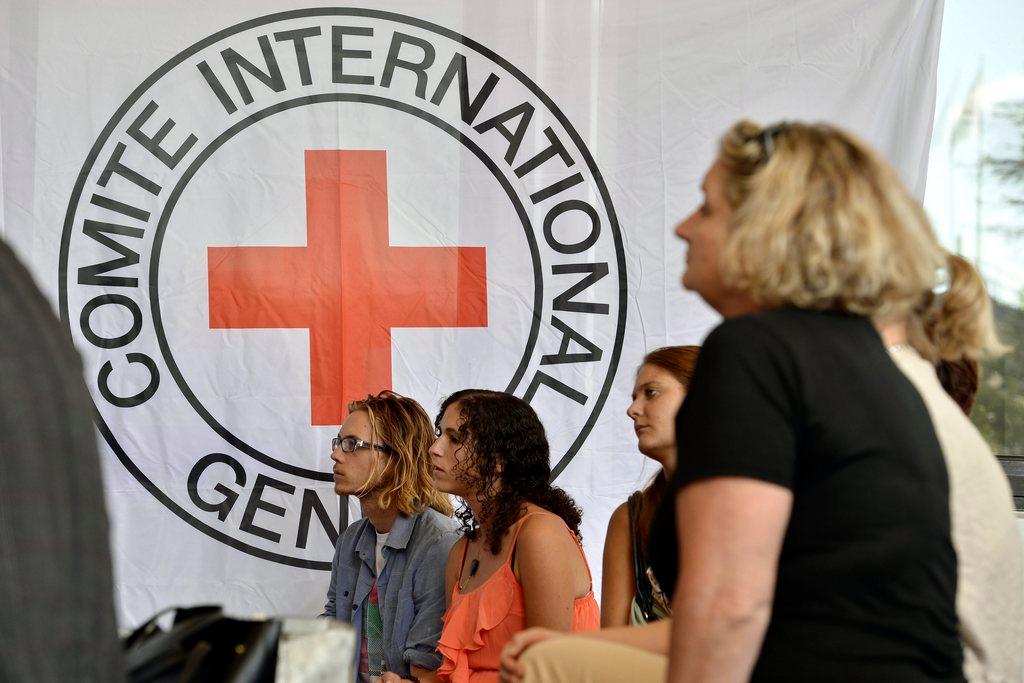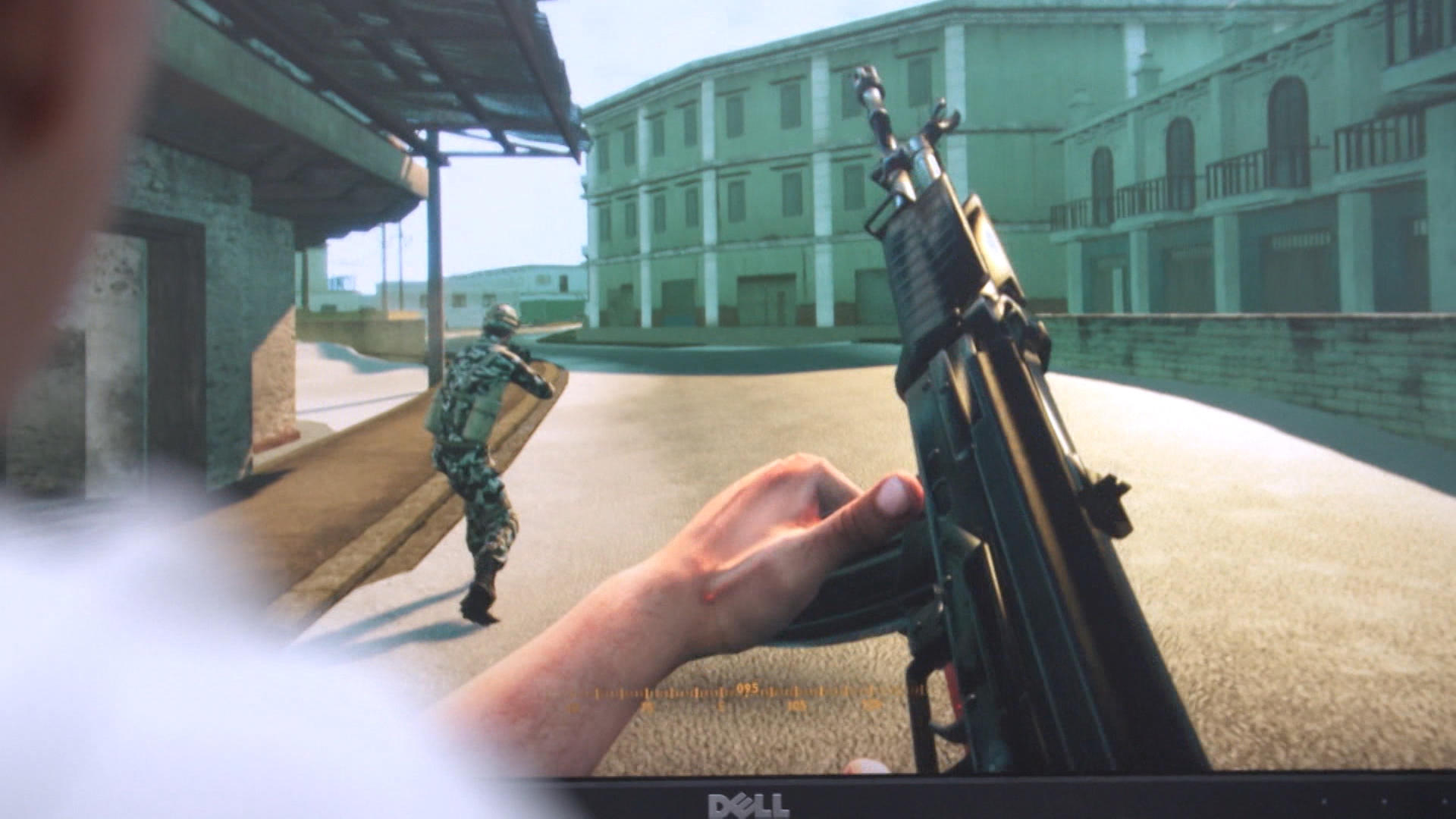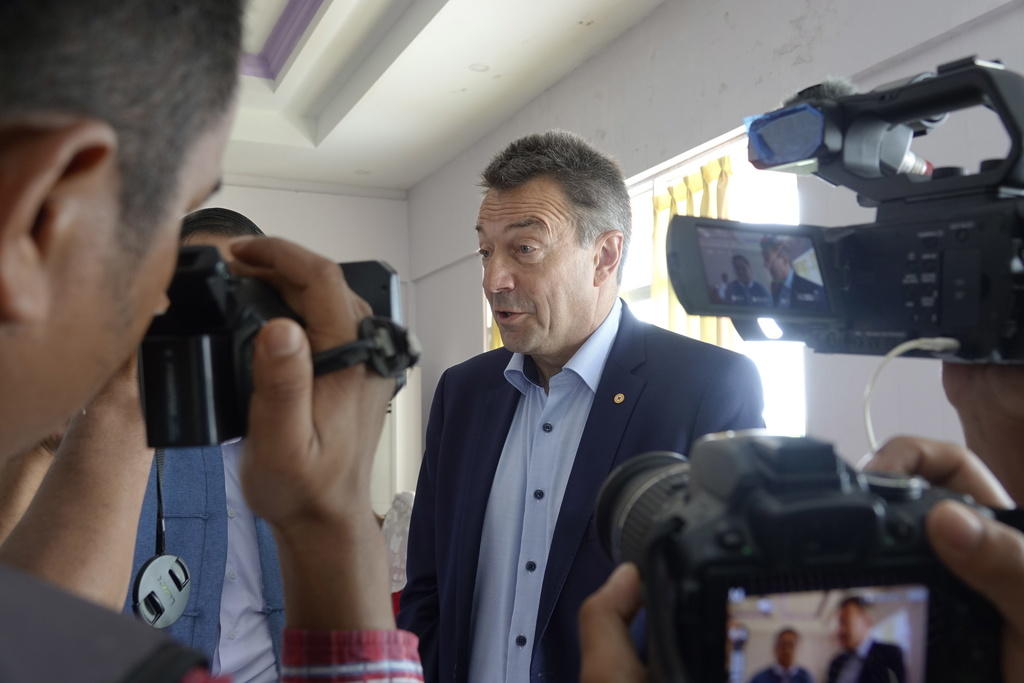New Zealand slams ICRC for naming kidnapped nurse

The International Committee of the Red Cross (ICRC) is facing criticism from the New Zealand government after it released the name of a New Zealand nurse captured by the Islamic State group (ISIS) in Syria.
On Tuesday, New Zealand Foreign Minister Winston Peters lambasted the Geneva-based aid agency for releasing the name and nationality of Louisa Akavi, 62, a New Zealand nurse who was abducted along with two Syrian colleagues on October 13, 2013. The three have been held hostage for longer than anyone in ICRC history.
The ICRC said it believed it had New Zealand’s support for its decision to allow the New York Times to publish the name and nationality on Sunday. “We would not have made that decision without the support of the New Zealand Government,” said ICRC director of operations Dominik Stillhart.
+ Read more about the history of the ICRC in Geneva
However, Peters said that the ICRC’s official’s claim to have acted with the government’s support was “balderdash”. He said New Zealand opposed any steps that might endanger Akavi or complicate efforts to locate her and secure her release.
At a press conference on Monday, Prime Minister Jacinda Ardern declined to answer questions about Akavi but indicated she was disappointed the ICRC had gone public with her name. “It remains the government’s view that it would be preferable if the case was not in the public domain,” she said.
Media pact
Since Akavi’s capture in 2013, successive New Zealand governments and the ICRC had maintained an agreement with international media to keep the nurse’s name and nationality secret out of fear that she could be executed by her captors for propaganda. ISIS has vowed to avenge a March 15 attack that left 50 dead at two mosques in New Zealand and the government feared that knowledge of Akavi’s nationality could make her a target for retribution.
ICRC reasoned that releasing Akavi’s name would raise chances of receiving news of her whereabouts following the collapse of ISIS in Syria. The agency said it had received information that she may have been seen alive as recently as December.
Peters noted that the government continues to work with the ICRC to locate and recover Akavi.

In compliance with the JTI standards
More: SWI swissinfo.ch certified by the Journalism Trust Initiative



You can find an overview of ongoing debates with our journalists here. Please join us!
If you want to start a conversation about a topic raised in this article or want to report factual errors, email us at english@swissinfo.ch.